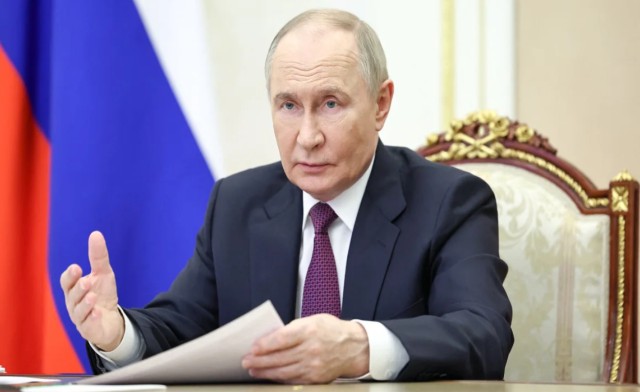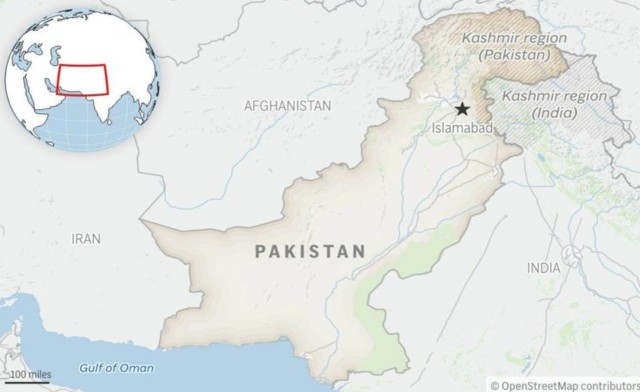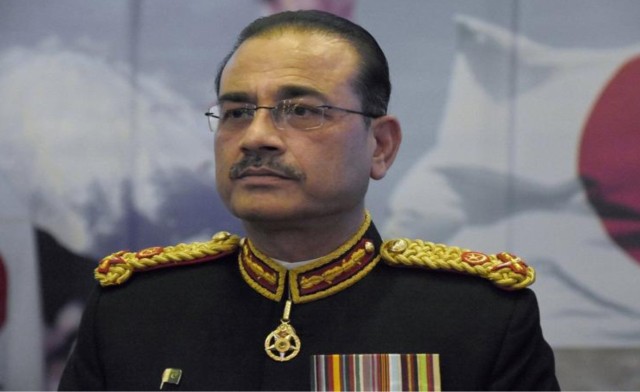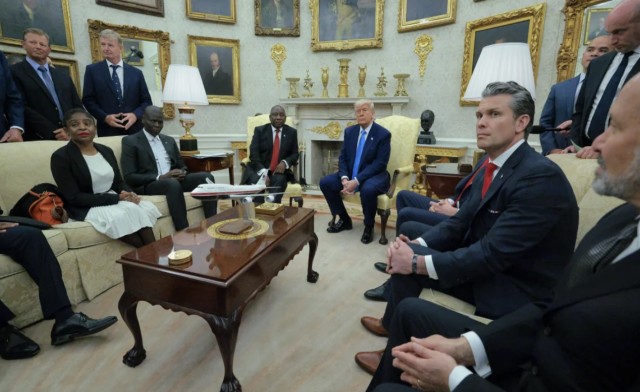
People celebrate in Umayyad Square in Damascus, Syria, on May 13, following US President Donald Trump's decision to lift sanctions in Syria. (Getty Images)
In a major shift, the United States has started lifting sanctions on Syria. This comes after President Donald Trump’s unexpected announcement during his recent Middle East tour. The decision marks a turning point in US foreign policy towards Syria, a country long crippled by war and isolation.
New License Sparks Sanctions Relief
The US Treasury Department revealed that Syria now holds a general license under the Syrian Sanctions Regulations. Known as GL25, this license permits previously prohibited transactions. It includes dealings with Syria's interim government, central bank, and state-run enterprises.
This move effectively lifts significant restrictions and opens doors for private investments and economic partnerships. The Treasury described it as aligned with Trump’s “America First” strategy, aiming to support Syria’s rebuilding.
Waiver Issued to Promote Recovery
Simultaneously, the US State Department issued a 180-day waiver under the Caesar Act. Secretary of State Marco Rubio said the waiver would not only support economic recovery but also ease humanitarian efforts.
Rubio emphasized the importance of this waiver. It will help restore vital services such as electricity, water, energy, and sanitation. These are essential for a nation recovering from years of conflict.
“This is the first step in reshaping US-Syria relations,” Rubio stated.
Trump’s Saudi Visit Triggers Fast Action
Trump’s policy pivot followed his high-level meetings in Saudi Arabia. There, he held discussions with Syria’s interim President Ahmed al-Sharaa. Trump publicly promised the swift removal of sanctions, surprising many within his administration.
The sudden decision triggered urgent coordination across US agencies. Rubio later confirmed that waivers would be implemented while a deeper review of the sanctions continues. That technical process may take weeks to complete.
Future of Caesar Act Uncertain
Despite the recent steps, Rubio cautioned that lifting the sanctions law entirely is still premature. Investors are hesitant, knowing sanctions could return within six months. "We need real progress before discussing repeal," he said.
The Caesar Act, a powerful tool enacted to hold the Syrian regime accountable, remains in place—at least for now.
Regional Allies React Differently
Trump’s move has divided US allies. Saudi Arabia strongly supported the shift. Officials there had worked quietly behind the scenes for months, urging the US to help stabilize Syria economically.
Turkey was also in the loop. Turkish officials backed the easing of sanctions, seeing it as a step toward regional stability.
However, not everyone agreed.
Israel Voices Concern
Israel opposed the sanctions rollback. During an April meeting in Washington, Prime Minister Benjamin Netanyahu urged Trump to reconsider. He cited fears of security threats, referring to the October 7, 2023, Hamas-led attack on Israel.
Despite the warnings, Trump pushed forward. “I didn’t ask Israel,” he said during his Middle East tour. “I thought it was the right thing to do.”
Conclusion: A New Chapter for Syria and US Ties
The US decision to ease sanctions signals a possible thaw in relations with Syria. While the process is far from over, the message is clear: the Trump administration is ready to turn the page.
With key licenses and waivers now in place, the world watches closely. Whether this gamble will bring stability to Syria—or stir more tensions—remains to be seen.















